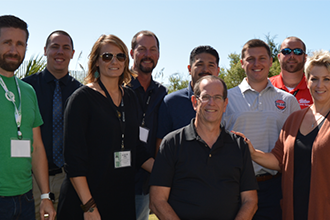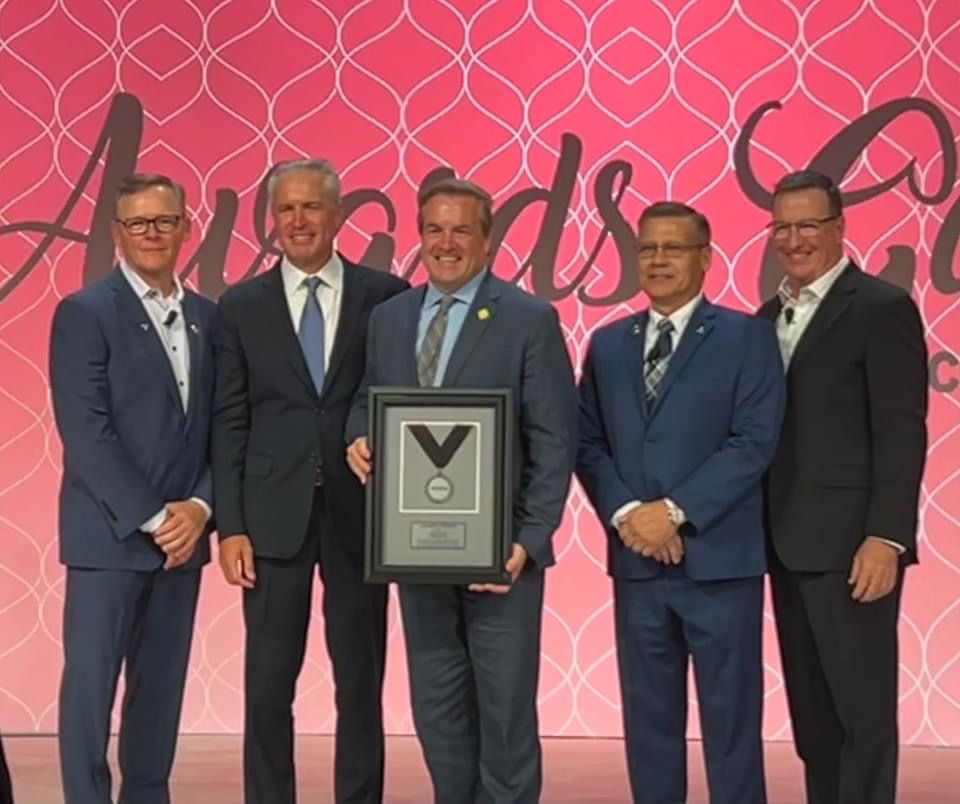ESA’s Rising Leaders Provide New Insight Into Career Opportunities in the Rapidly-Evolving Electronic Security and Life Safety Industry Cobb County, GA Fire Marshal approves NTS Course as NICET Equivalent
–>
ESA Rising Leaders: Get Into Security!
ESA’s Rising Leaders Provide New Insight Into Career Opportunities in the Rapidly-Evolving Electronic Security and Life Safety Industry
IRVING, Texas (Jan. 24, 2018) — The electronic security and life safety industry has experienced a complete shift in the last five years. Advances in technology have redefined the industry and led to innovations that have created smart homes, smart buildings – and now smart cities.
According to a survey published on eWeek.com, the industry is also playing a leading role in the adoption of Internet of Things (IoT) applications: “Among the companies that are investing in IoT, 77 percent have adopted IoT security services with 71 percent having employed building security components and approximately two-thirds are using IoT analytics.”
“This shift is expanding opportunities and creating new job roles. What was once viewed as a very traditional industry has evolved into an entrepreneurial, collaborative, technology-driven environment,” says Robert Few, committee chair of the Electronic Security Association’s (ESA) Rising Leaders Group and co-founder and managing partner of The Connection Xchange.”
We interviewed three rising leaders in the electronic security and life safety industry to provide more insight into the types of jobs available and what it takes to secure a job in this fast-moving industry.
• Cameron Fleck, Owner of NewVision Security located in Bismarck, North Dakota.
• Mistina Franklin, Director of Employee Engagement for Owen Security Solutions located in Calhoun, Georgia.
• Sam Korff, Business Development Manager for JM Resources, Inc., located in King of Prussia, Pennsylvania.
The three were participating in ESA’s Rising Leaders Forum, an education, networking and team-building summit specifically designed for young industry professionals. We caught up with them just as they were headed into a team building session led by a former member of the U.S. Army Special Forces.
Why should someone, especially a high school, technical school or college graduate consider a career in the electronic security and life safety industry?
Mistina: First and foremost is the growth potential. We are on the cutting edge in so many different areas and the career options are endless. In addition to engineering, programming, and installation, there are opportunities in sales, marketing, communications, administration, technical support, engineering, accounting, human resources and customer care.
You also have the option to select different fields within the industry. For example, you can specialize in the residential sector, focusing on security for homes, condominiums and apartment communities or in the commercial sector providing security solutions for small businesses, health care facilities, retail establishments, industrial sites and entertainment venues.
Sam: I agree with Mistina 100 percent. There is every opportunity imaginable in the field. There is the established market working side-by-side with startups, focusing on new aspects of the industry such as artificial intelligence. Our industry is being redefined and reshaped every day.
Cameron: Let’s just talk trade industries, for example. If you are currently an electrician and want to move into a different field, you can start programming panels as a part of your next step, instead of just pulling wire tubing. There are enormous growth opportunities, just within the technician role alone. A technician for a security company is a very good job in and of itself – and if you are a good technician, you can move into other fields in the industry without necessarily having to go back to school. How nice is that?
According to The Deloitte Millennial Survey 2017, “opportunities to be involved with ‘good causes’ at the local level, many of which are enabled by employers, provide millennials with a greater feeling of influence.” How does the electronic security and life safety industry measure up in this area?
Cameron: One area that most young people would not associate with the electronic security industry is energy conservation and savings. My company worked with an electric cooperative in Bismarck, ND. The ultimate purpose of the project was to encourage members of the cooperative to save power during peak times – which in turn reduced costs to the cooperative and ultimately to its members. For example, members who sign up to help reduce power usage during peak times, not only save energy but receive a rebate. We were very proud to be involved in this initiative. Projects like this are a great way to give back to your community.
Sam: Companies in this industry inherently help the communities they serve, especially in the detection and deterrence of criminal activity. In Philadelphia, we have a camera co-op program for commercial buildings. If a building has a camera system installed and agrees to provide access to the footage when a crime occurs, the city will pay for a portion of the cost of the system. The businesses get security surveillance at a discounted price, and law enforcement has easy access to footage that can help identify a suspect. Being able to install video surveillance systems that help make a difference for the community is a win-win.
Mistina: You don’t just make a difference at a community level, you also help people at a one-on-one level through knowledge and compassion. When you are working with someone who has been the victim of a break-in, it’s not just about security technology or a security product. You are reassuring someone who has experienced a traumatic situation – and in many cases, you are literally holding their hand.
How does someone find a job in the electronic security and life safety industry?
Cameron: Internships through trade schools, colleges and high schools. I have hired several employees through their intern positions.
Mistina: Explore internship opportunities. Our company has an internship program with the local high school, for example.
Sam: The Electronic Security Association (ESA) has a website, GetIntoSecurity.com. The site has a lot of great information about jobs available in the industry and a resource link that will help you find electronic security and life safety companies with job openings in your community.
So, how did you Get Into Security?
Sam: I actually grew up in the industry. My father started the company. After college I did corporate finance for a number of years, and decided that I wasn’t passionate about it. I recently came back into the company full-time to do business development.
Cameron: My passion has always been electronics. I went to school to study electronics. I really wanted to start my own business (ask my wife, I had a hundred ideas), and security is just one of those things that I like, so I went into the electronic security industry. It’s what I knew and what I wanted to do, so that’s how I got into security.
Mistina: I have a background in employee retention, development and training. My current position is director of employee engagement for Owen Security Solutions. I am also heavily involved in customer service and employee support. My career path is indicative of the broad scope of opportunities available in the industry.
About The ESA Rising Leaders Professional Group
The ESA Rising Leaders Professional Group is a national network that connects and cultivates rising leaders within the security industry through professional development, mentorship, events and resources.
–>
ABOUT ESA
Established in 1948, ESA is the largest trade association in the United States representing the electronic life safety and security industry. Member companies install, integrate and monitor intrusion and fire detection, video surveillance and electronic access control systems for commercial, residential, industrial and governmental clients. In cooperation with an alliance of chapter associations, ESA provides technical and management training, government advocacy and delivers information, advice, tools, and services that members use to grow their businesses and prosper. Together, ESA member companies employ more than 500,000 industry professionals and serve more than 34 million residential and commercial clients.www.ESAweb.org
–>
–>
–>
Copyright © 2018 Electronic Security Association, All rights reserved.




